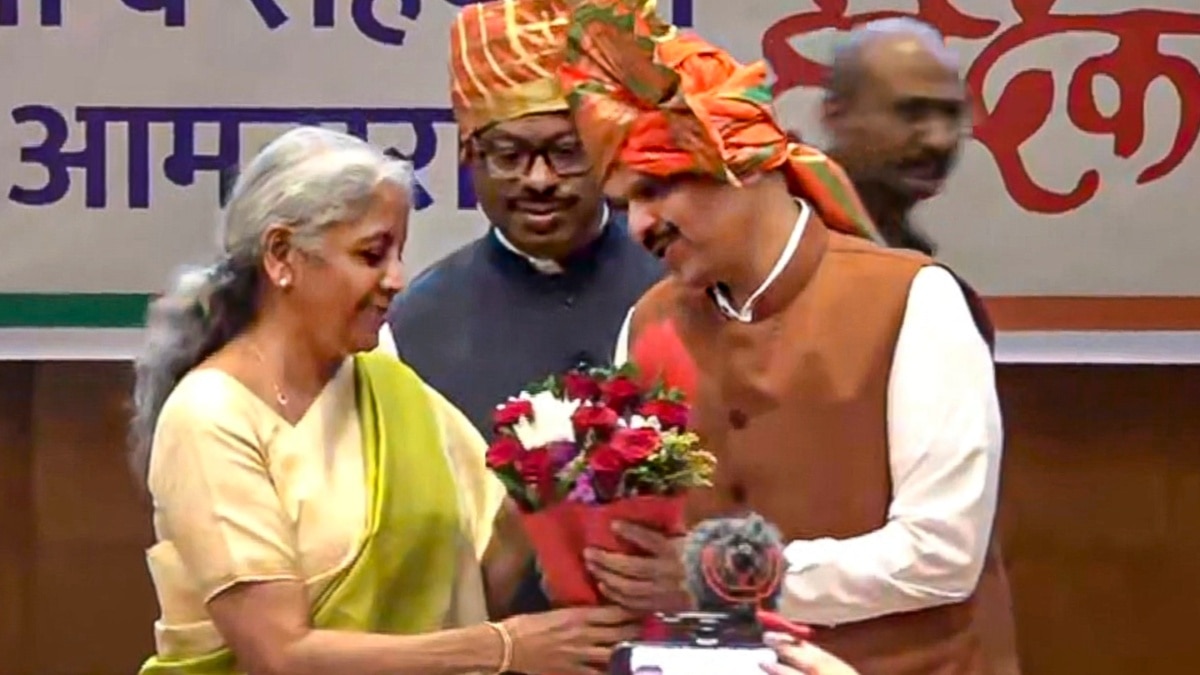
Britain is sick – that much is obvious. We have become a nation of unwell people. The statistics make for harrowing reading.
One in five working-age adults now has a health condition that limits their ability to work . 7.5 million people in England alone are on NHS waiting lists.

After consistently rising for centuries, life expectancy is now in decline . Ask people what is driving this epidemic of ill-health and you will get the same few answers. Our diets are too unhealthy.
We don’t move enough. We smoke too much. We drink to excess.
All of this is true. One in four UK adults are clinically obese; two thirds are overweight. A quarter of us drink more alcohol than we are supposed to.
In general, we have stopped giving our bodies what they do need and instead give them too much of what they don’t. No great surprise, then, that the Government’s drive to make the nation healthier is focusing on these problems. Wes Streeting and Sir Keir Starmer are pushing ahead with plans to stop this generation of children ever buying tobacco.
They are considering banning smoking in some public areas. And last week, it was reported that ministers are drawing up plans for a series of junk food levies. These are all sensible steps.
But there is another cause of Britain’s national sickness that is being dangerously overlooked – one Starmer and Streeting need to be talking much more about – Britain’s loneliness epidemic. It is hard to overstate the scale of the problem. Half of UK adults say they sometimes feel lonely, and a staggering four million people are classed as chronically lonely, meaning they experience loneliness often or all the time.
Britons are more likely than any other nationality in Europe to search online for ways to combat loneliness. And since the pandemic, the problem is getting worse. The common misconception is that loneliness is an affliction of the elderly – the phrase itself conjures up images of widows and widowers sitting alone at home with nobody to talk to.
Loneliness among pensioners is indeed a major problem, but an even bigger one lies elsewhere. Young people are more than twice as likely as their grandparents’ generation to be lonely . In fact, 7 in 10 of people aged 18-24 say they feel lonely at least some of the time, compared to three in 10 over-75s.
The impact of all of this on the nation’s mental health is clear. Lonely people are far more likely to be depressed and anxious – conditions which, in turn, often exacerbate their loneliness. Study after study has found that the biggest impact on people’s wellbeing and happiness is the quality of their personal relationships.
In an increasingly fragmented country, with deep social divisions and an our individualistic modern world, it is no wonder that so many of us have become so miserable. Tackling loneliness is a vital part of addressing the mental ill-health crisis in the UK. Less obviously apparent, but no less stark in the scientific data, is the impact that feeling alone has on our physical health.
Chronic loneliness has been found to have the same impact on physical health as smoking 15 cigarettes a day , or being obese. It is linked to an almost endless list of diseases, from cancer to Alzheimer’s to diabetes. Loneliness increases your chance of a heart attack or stroke by nearly a third.
In one study, patients with heart disease were found to have a four times higher chance of dying if they were lonely than if they were not. Vivek H Murthy, the former US Surgeon General, was so shocked by the link between loneliness and illness that he felt compelled to write a book on it. The result, Together , should be required reading for all national leaders.
In it, Murthy explains how a lack of connection unpinned many of the problems he saw in patients during his time as a doctor. “Loneliness”, he writes, “ran like a dark thread through many of the more obvious issues that people brought to my attention.” Any politician serious about tackling ill health needs to understand the urgent need to address this scourge.
The Labour government has not made a good start. In 2018, the UK became the first country in the world to establish a dedicated Minister for Loneliness. Labour has not announced who will be taking on the roll, although I am told that Stephanie Peacock, the Minister for Civil Society, has been handed the responsibility.
Peacock’s ministerial responsibilities are listed on the government website. They do not include any mention of loneliness. And despite supposedly being the Minister for Loneliness, she has not mentioned the issue in the House of Commons chamber since entering government in July.
Nor have Streeting or Starmer. It is a glaring omission in the Government’s strategy for improving Britain’s health. Just as worrying is the fact that the responsibility for tackling loneliness has been given to a minister in the Department for Culture rather than the Department of Health, suggesting the Government has failed to wake up to the major health consequences of loneliness .
What an absurdity that none of the ministers responsible for the nation’s health are tasked with tackling this major cause of illness. Read Next The social epidemic that is spreading like wildfire While it would help if the Government was actually talking about this problem, nobody pretends that solving it will be easy. The loneliness crisis we face is a result of so many different facets of the society we have created, from social media to modern work patterns to the housing shortage.
There are cultural issues at play too: Brits are less likely than other cultures to have several generations of the same family sharing a home, for example. Still, there are some steps that could help. Many GPs have already started what’s called “social prescribing” for patients who are struggling with their mental health.
This involves referring people to community schemes where they can find connection and meaning, whether through art, sport, music or gardening. These initiatives, along with community centres and youth centres, need more funding. Ministers also need to make public transport more reliable and affordable, given it is a lifeline for so many when it comes to getting out and meeting others.
From this perspective, the recent decision to raise the cap on bus fares is a potential disaster. Housing is also key to addressing the loneliness problem, and councils need to do more to force developers to include public spaces in their plans. Too often neighbours are packed into buildings designed to squeeze in as many people as possible, with no thought given to the shared areas where residents can meet and socialise.
These public areas matter, yet we have fewer and fewer of them. Finally, schools should be doing more to help children learn the skills they need to form and sustain relationships throughout life. Given the importance personal connections to wellbeing and prosperity, a curriculum that prioritises teaching trigonometry and trivectors over traits like empathy and compassion is one that needs a rethink.
As with all elements of public health, though, there is only so much the state can do. The Government can tax sugar, but it cannot force us to stop eating so much chocolate. It can make it harder or more expensive to buy alcohol, but nobody is seriously advocating a full ban on booze.
We all have to take some personal responsibility, not just for our own wellbeing but that of the people around us. If loneliness is a failure of society, only society can truly tackle it. How many of us check in on our friends enough, or make as much effort as we might with older relatives? Do we bother to get to know neighbours, or take time to contribute to our community? Too often we do not.
Even if we all need to play a role in tackling the problem, the Government can take a lead by starting a conversation about loneliness and the toll it is taking on so many of us. Right now, that isn’t happening. If Starmer and Streeting are serious about improving public health, that needs to change – and fast.
B en Kentish presents his LBC show from Monday to Friday at 10pm, and is former Westminster editor.










